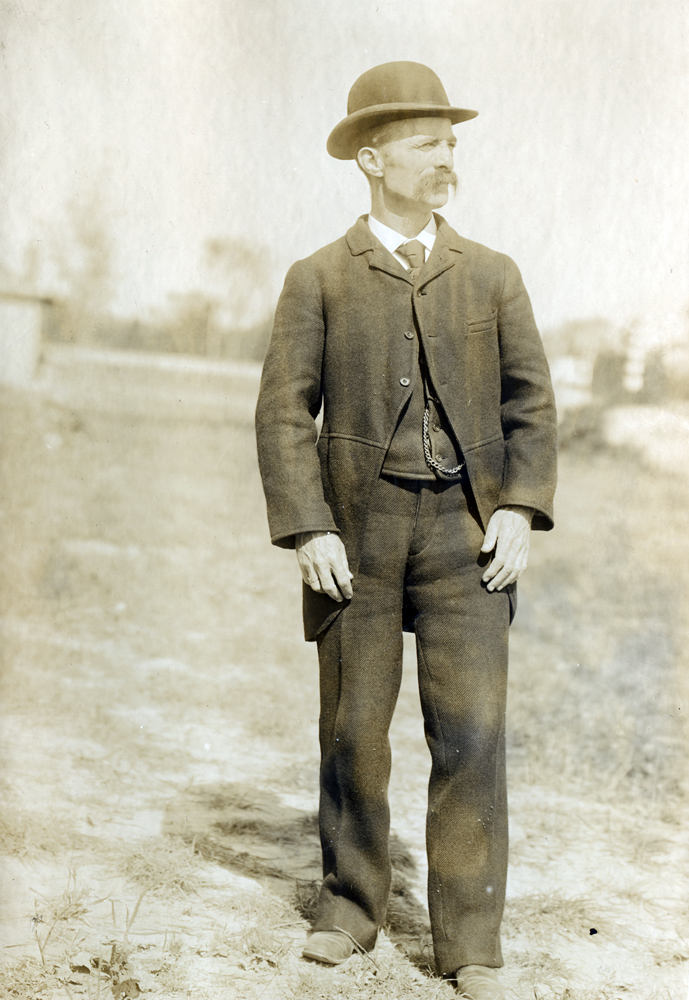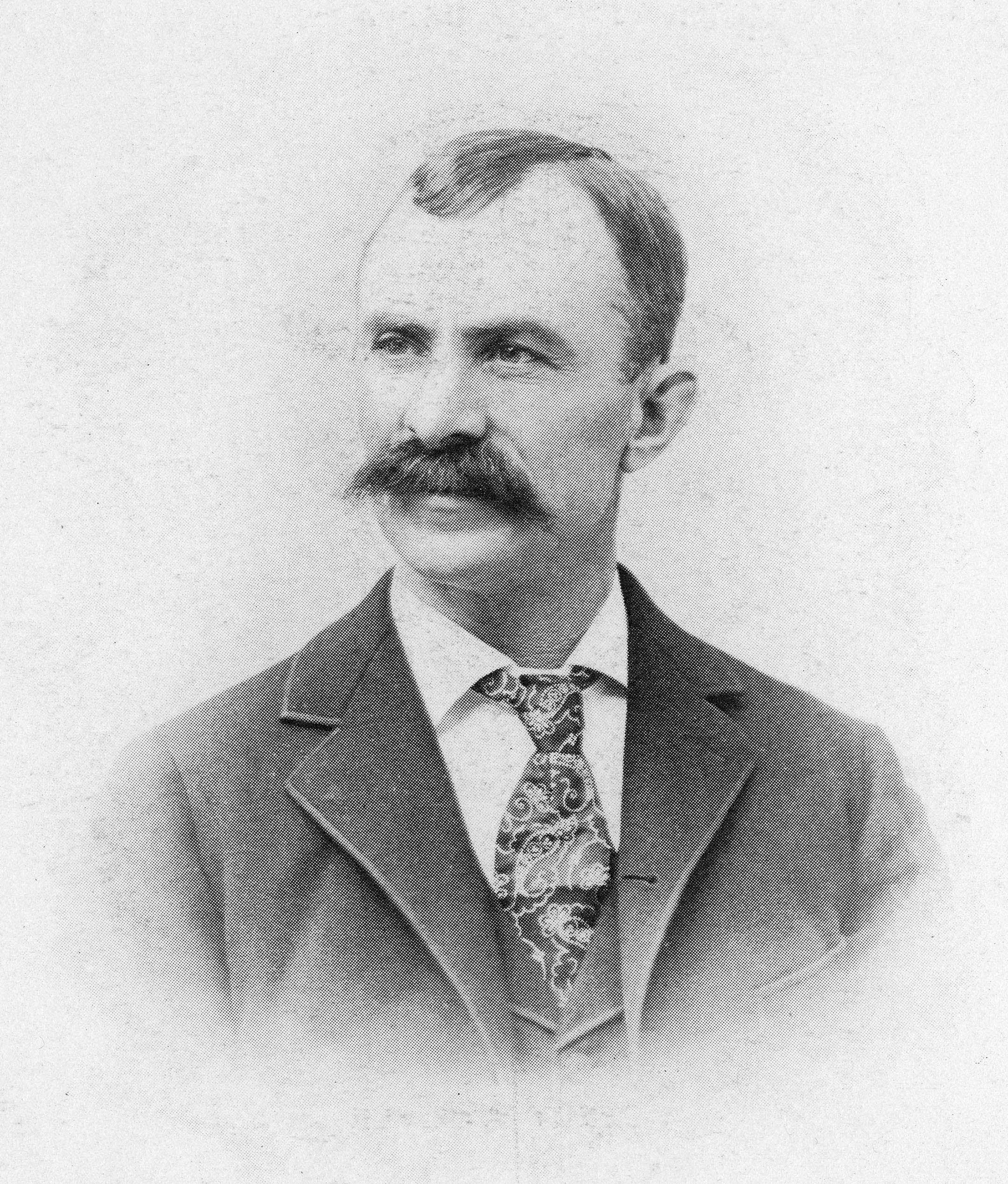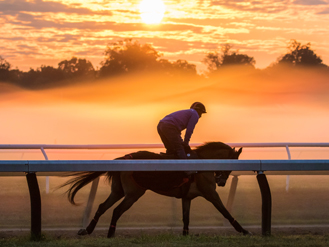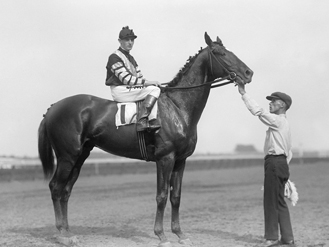William Lakeland
William “Billy” Lakeland didn’t seem destined for great success and national acclaim while growing up. Born in 1853 in Manchester, England, Lakeland’s family arrived in America a decade later and settled in Paterson, New Jersey. Possessing only a rudimentary education because he was sent to work in a cotton mill to help his struggling family make ends meet, Lakeland’s prospects seemed limited.

2018
1853, Manchester, England
Feb. 4, 1914, New York City, New York
1877-1908
Biography
William “Billy” Lakeland didn’t seem destined for great success and national acclaim while growing up. Born in 1853 in Manchester, England, Lakeland’s family arrived in America a decade later and settled in Paterson, New Jersey. Possessing only a rudimentary education because he was sent to work in a cotton mill to help his struggling family make ends meet, Lakeland’s prospects seemed limited.
Lakeland managed to find his way to the racetrack — and his calling in life. He began working in the horse stalls at the old Passaic track in New Jersey and quickly became an exercise rider for Capt. William Cottrill’s prominent stable.
Lakeland started riding in races in 1869 and developed a reputation as one of the finest young jockeys in America. He traveled throughout the country, winning several notable events. In California, Lakeland rode Wildidle to victory against Grinstead at four miles in the Wise Plate. His biggest victory in California was a stake at four-mile heats for $30,000 aboard Foster at San Francisco for Capt. T. G. Moore. As a jockey, Lakeland also owns the distinction of winning the first race ever contested at Churchill Downs, a $300 purse aboard Bonaventure on May 17, 1875. The next race in the card was the inaugural Kentucky Derby, but Lakeland’s mount, Ascension, was out of the money.
It was around that time that Lakeland started to become too heavy for flat racing. He rode some steeplechasers for a while and began to transition into training. Lakeland started buying his own horses to train while also working for other owners.
Lakeland’s top owners included prominent sportsmen James R. Keene and Marcus Daly. For Keene, Lakeland trained one of the greatest horses of the 19th century, Hall of Famer Domino. Known as “The Black Whirlwind,” Domino won all nine of his starts as a 2-year-old in 1893 and earned $170,790, which easily bested the record career mark of $139,917, established by Kingston, which was earned in 138 starts. Domino’s wins that year included the Great Eclipse Stakes, Futurity Stakes (the richest race of the year with a purse of $48,910, drawing 19 runners), Great American Stakes, Great Trial Stakes, Hyde Park Stakes, Matron Stakes, and Produce Stakes. In the Matron, at Morris Park, Domino set a new American record of 1:09 flat for six furlongs.
Domino began his 3-year-old campaign in 1894 with a victory over Belmont Stakes winner Henry of Navarre in the Withers Mile to stretch his win streak to 10. Domino won five of his next seven races, including a dead heat in a match race with Henry of Navarre before a crowd of 20,000 at Sheepshead Bay. Along with his win in the Withers, Domino won the Flying Stakes (setting a track record under 130 pounds), Culver Stakes, Ocean Handicap and Third Special. From 25 career starts, Domino posted a record of 19-2-1 and earnings of $193,550. His career earnings mark stood until Man o’ War surpassed it in 1920. Domino's 2-year-old earnings of $170,790 remained the standard for 38 years until Top Flight came along in 1931.
Three years after Domino’s retirement, Lakeland took over the conditioning of Hall of Fame member Hamburg for the great colt’s 3-year-old campaign for Daly, who purchased the horse for a record $40,001. After finishing third in the Belmont Stakes in his first start of the year, Hamburg easily won the Spring Special and Swift Stakes before defeating Kentucky Derby winner Plaudit in the 1⅝-mile Lawrence Realization by two lengths. Hamburg then delivered a virtuoso performance in the 2¼-mile Brighton Cup against an accomplished field of older horses. Hamburg was retired after the Brighton Cup victory with a career mark of 16-3-2 from 21 starts and earnings of $60,380.
Based on available records, Lakeland won 110 stakes races between 1878 and 1908. He won the Coney Island Handicap four times, the Futurity three times, and the Metropolitan Handicap, Brooklyn Handicap, Brighton Cup, and Matron twice each. Lakeland also won the 1894 Preakness Stakes with Assignee.
In an era when stamina and durability were essential for thoroughbreds, Lakeland was famous for sending some of his horses out to race — and often win — multiple times on the same card. One of Lakeland’s horses, Little Reb, once achieved the incredible feat of winning three races on a single card and two more the following day.
Achievements
Triple Crown Highlights
Won the 1894 Preakness Stakes — Assignee
Notable
— Trained Hall of Fame members Domino and Hamburg
— Won 110 stakes races
— As a jockey, won the first race ever contested at Churchill Downs (May 17, 1875)
Media






